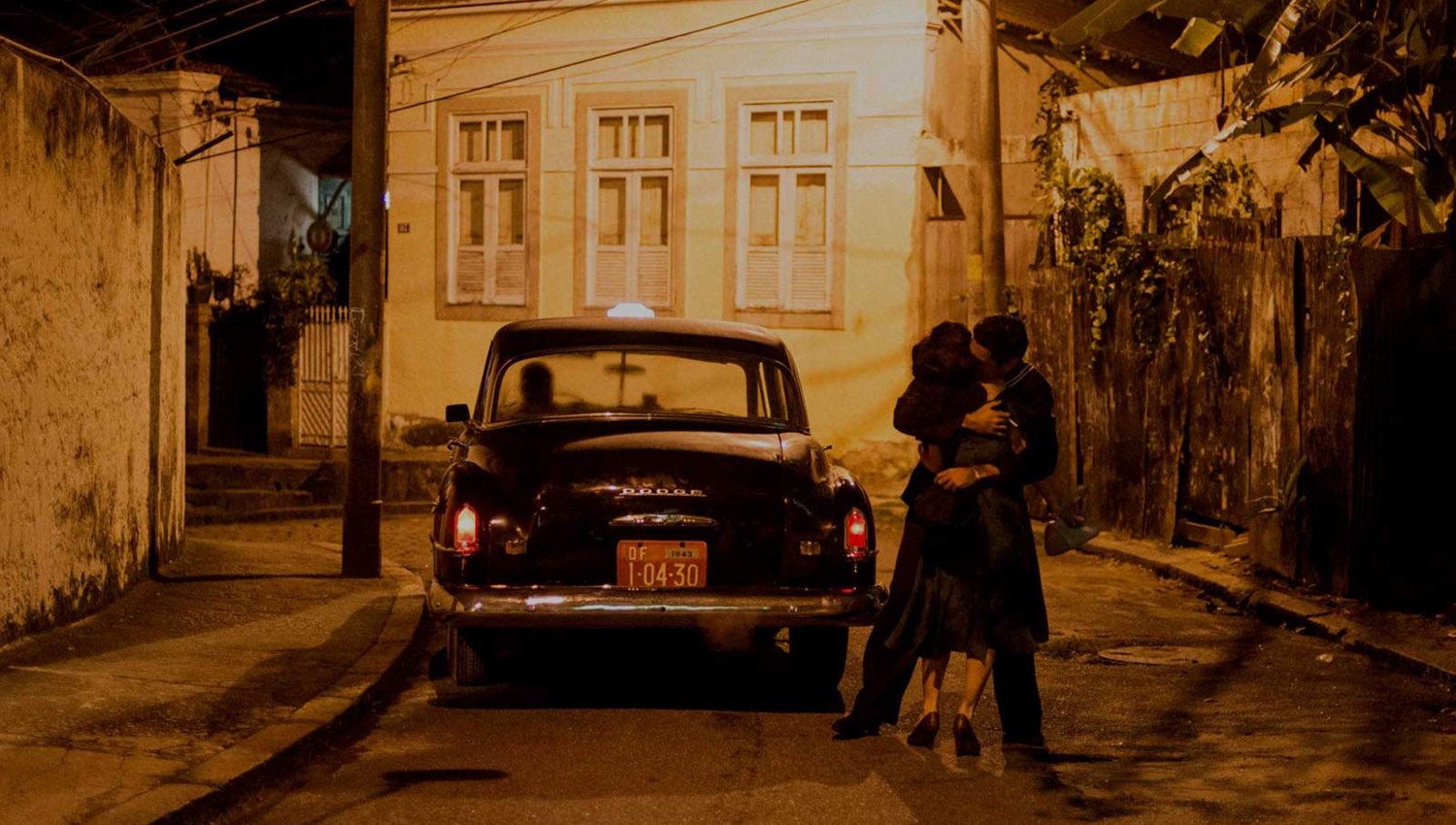
Invisible Life
Dustin Chase
Brazil’s entry to compete in the Academy Award for best International Film debuted at Cannes earlier this year where it received the Un Certain Regard Award for director Karim Aïnouz. “Invisible Life” has some stereotype issues, all women are victims in a story set in the 1950’s and that all men are pushers. Beyond that however “Invisible Life” is an elevated melodrama that takes a hard look at circumstance and family disapproval. Set in Rio de Janeiro, nearly every frame is filled with color and light as we follow two sisters intentionally separated, each imagining the other is living out her chosen path. The performances from Stockler and Duarte are quite powerful as the dual leads. Their ambition for a life outside their conservative household fades overtime to resentment and disappointment.
Guida (Stockler) was always the more defiant sister, Eurídice (Duarte) more willing to please their conservative parents. The Gusmão Family immigrated from Greece, now living on the outskirts of Rio. During their rebellious teenage years, Eurídice reluctantly provides cover to her sister, to spent time with her first crush. She never dreamed Guida wouldn’t return that night, fleeing to Greece with a man she hardly knew. Eurídice remained, following the path set before her, dreaming of attending Vienna and putting her piano skills to good use at the conservatory. Her father approved husband Antenor (Duvivier) does everything he can to keep her pregnant and at home. When Guida returns a year later, pregnant, discarded by her lover, her parents disown her. They tell Guida her sister is away at Vienna, and they tell Eurídice they never heard from Guida. Both sisters will spend the rest of their lives looking for each other.
Brazil’s strong claim to one of the five international film nominations lies with the audience ability to be moved by the subject matter.
It might be easier to find someone living in the same city as you today, but the films notion of how we falsely perceive everyone else has it better based on whatever evidence we have, isn’t a foreign concept. Instagram is simply a modern escalation of this very notion. Martha Batalha’s novel The Invisible Life of Eurídice Gusmão, from which the film is based, explores the illusions of life. “Invisible Life” has much to say about consequences and lack of forgiveness. Family isn’t necessarily who you are born to, but who you choose to love later in life. The structure of the film uses voice over as each sister writes unread letters to the other. “Guida you must be so happy and in love to never reach out to me,” juxtaposed with visuals of Guila working only streets away trading sex for money just so she can survive. “Invisible Life” is a heart breaking in more ways than seem obvious, but it’s also a powerful statement about choosing your own life, not the one set out for you.
While these two sisters are victims of circumstance, both take charge of their lives in ways they couldn’t imagine and the audience can’t foresee. Guida says that she understands what it means to be a woman alone in the world, refusing the idea of becoming like her mother, “a shadow of my father”. The linear narrative allows the viewer to track where each sister is during each period, giving both actresses time to play different facets of the same character. When the time period leaps forward, it does so in a jolting manner as the circumstances around each sister drastically. Motherhood, friendships and sexuality are also explored in this adaptation. Brazil’s strong claim to one of the five international film nominations lies with the audience ability to be moved by the subject matter.
Final Thought
A powerful and resonate story about the dangers of consequences.
